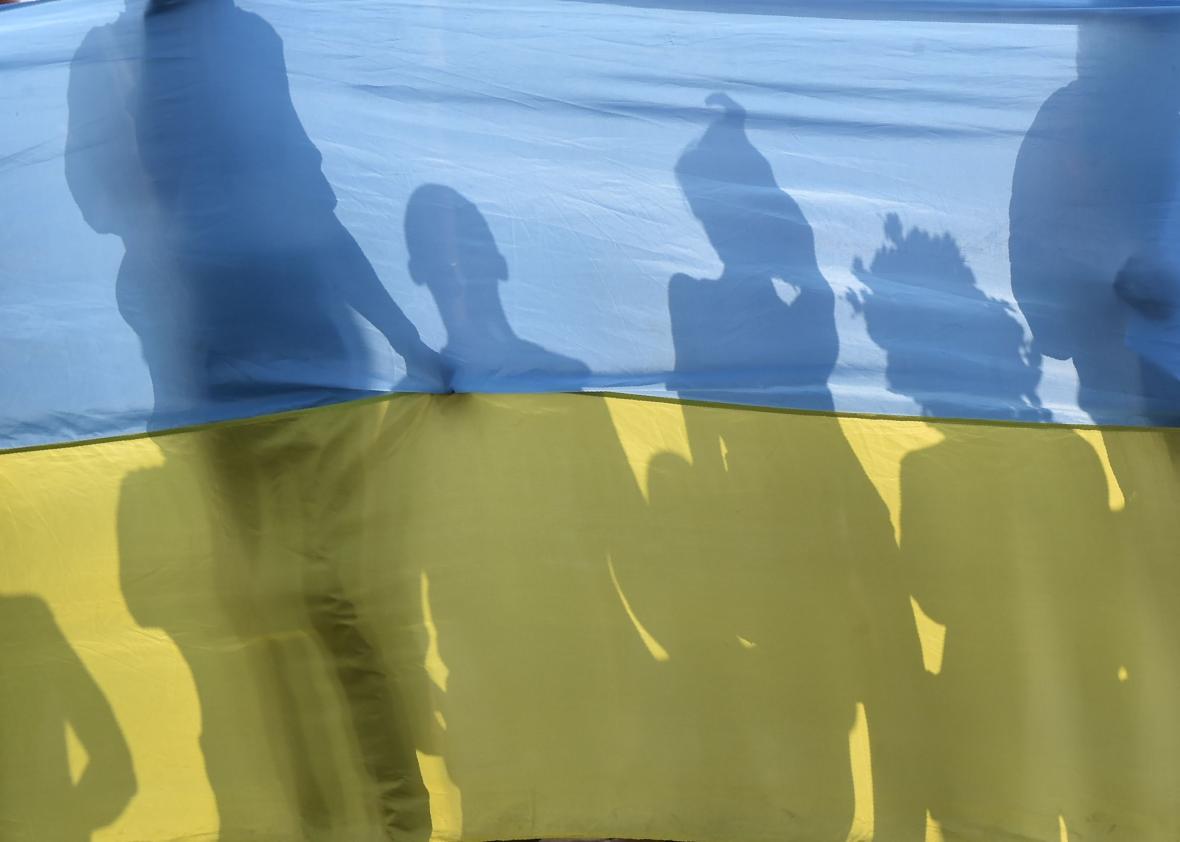There is a Russian expression that says, “Language will take you as far as Kiev”—that is, through verbal communication and understanding, you can go very far. (At the time the phrase was coined, Kiev was at the outermost edge of what was then the Russian Empire.) Perhaps Donald Trump is unfamiliar with this phrase, because it is very difficult to follow his language on Putin and Ukraine anywhere.
Trump was asked by George Stephanopoulos in an interview about the GOP platform’s softer stance on Russia and weakened support for Ukraine.
“I have my own ideas,” Trump began, adding, “He’s not going into Ukraine. Just so you understand. You can mark it down.”
Russia invaded Ukraine in 2014. Putin admitted that the “little green men” that appeared in Crimea were Russian in April 2014, and then, in December 2015, that Russia had a military presence in Ukraine. Thousands have died in the fighting.
Stephanopoulos points this out, there’s an interlude of Obama-blaming, and then, on Crimea, Trump says that, from what he understands, “the people of Crimea would rather be with Russia than where they were.”
OK. Now. Let us not dismiss this as Trump carrying out Putin’s party line and instead acknowledge that, yes, historically, Crimea was part of Russia, and was given to Ukraine under Khrushchev, and that many (but not all) in Crimea did, and do, more strongly identify with Russia than with Ukraine. Trump could have added that perhaps we in the West should not be so quick to delegitimize the Russian government’s desire to protect ethnic Russians after the overthrow of an immensely corrupt but nevertheless democratically elected regime (helmed by his campaign adviser’s former boss, Viktor Yanukovych). It would perhaps have served him better, however, to also mention that the pro-Russian sentiment is not nearly so clear-cut in also-invaded eastern Ukraine, and, further, that secession by invasion sets a poor precedent for world affairs, and that referendums must be free and fair, and that he recognizes that Ukraine, while Russia’s neighbor, is no longer part of the Soviet Union—that Kiev is no longer the furthest stretch of the Russian Empire, because it is now Kyiv, capital of an independent country, and that its autonomy, too, must be respected.
Trump then says that Ukraine is a mess under Obama and NATO, and that, under Trump, Ukraine will be better and so will relations with Russia.
